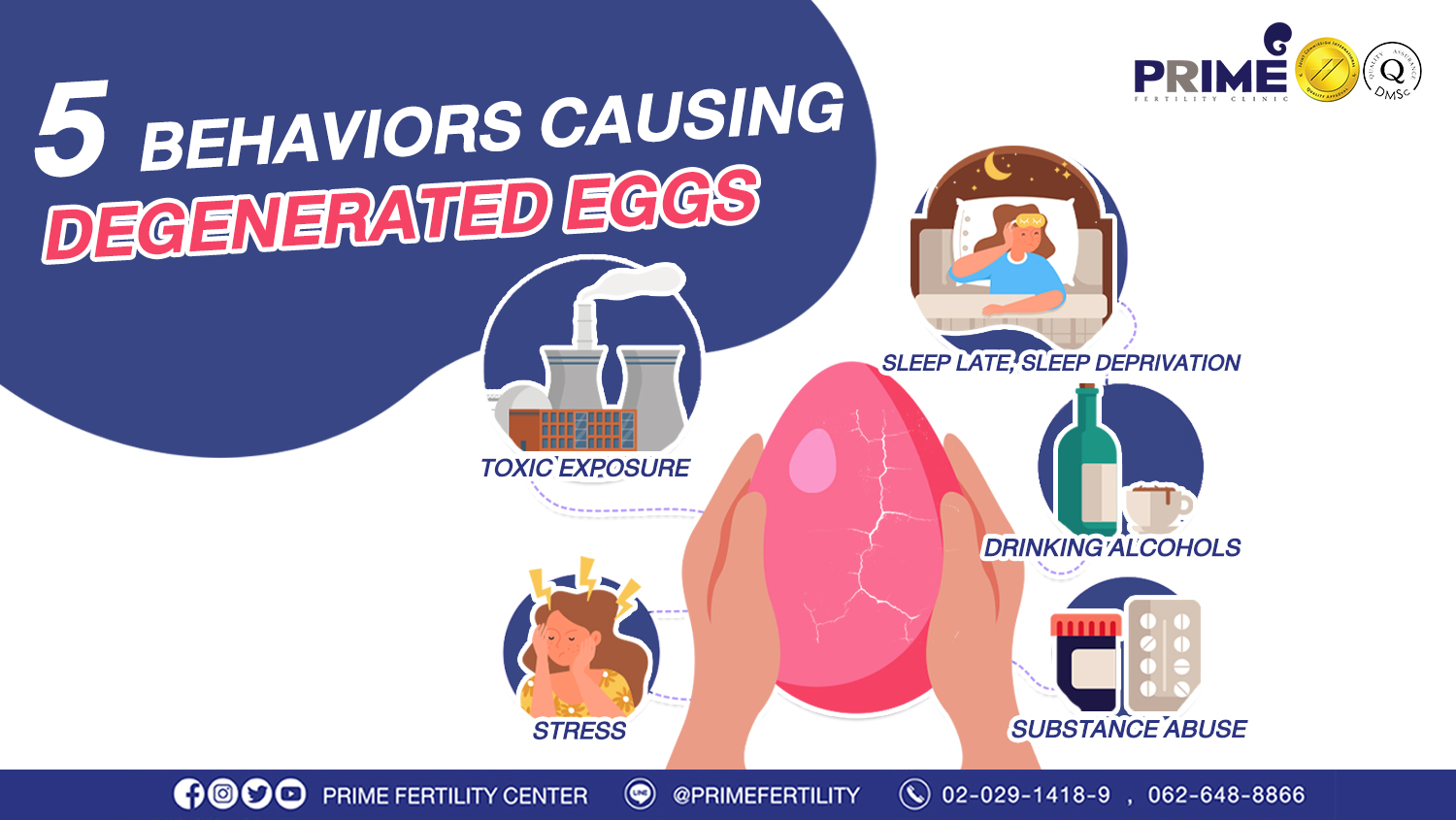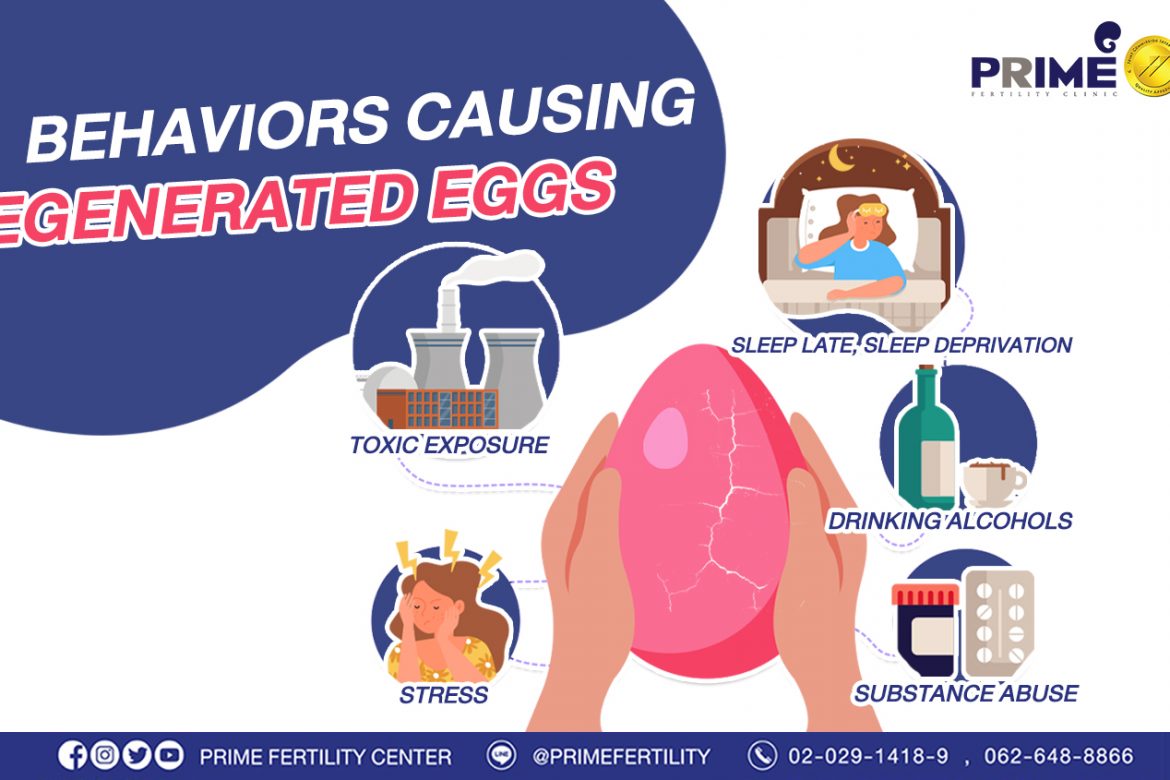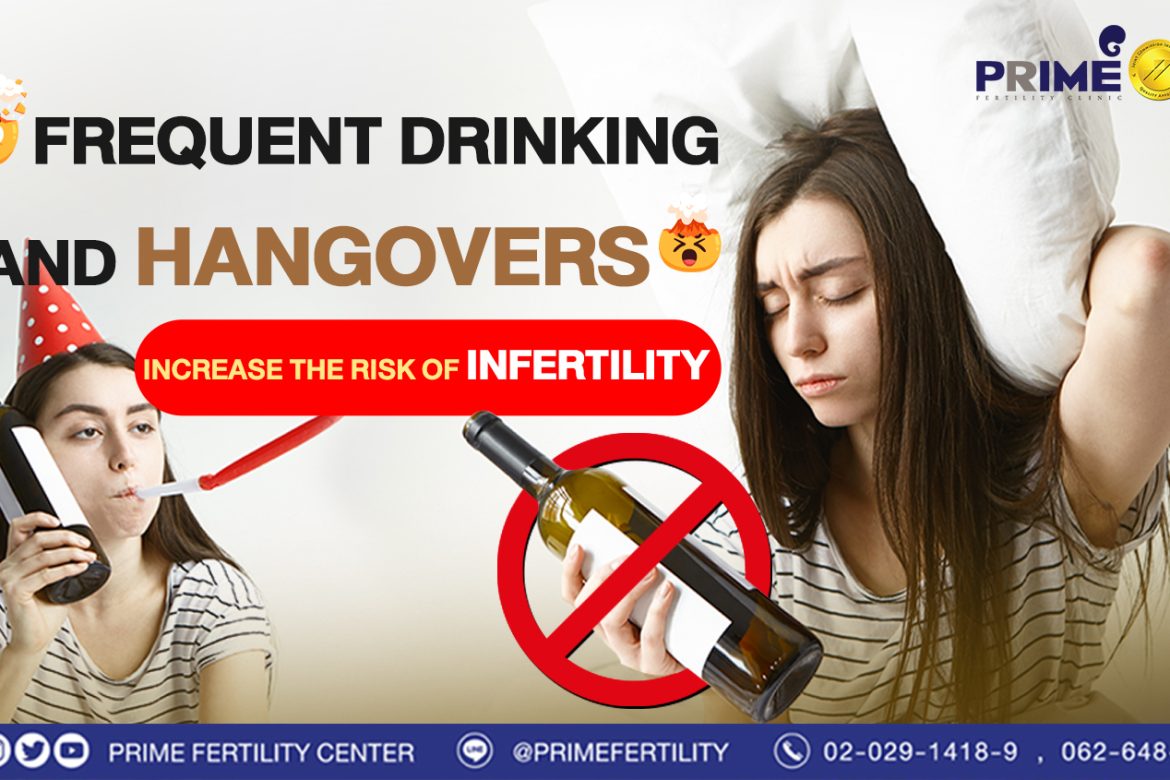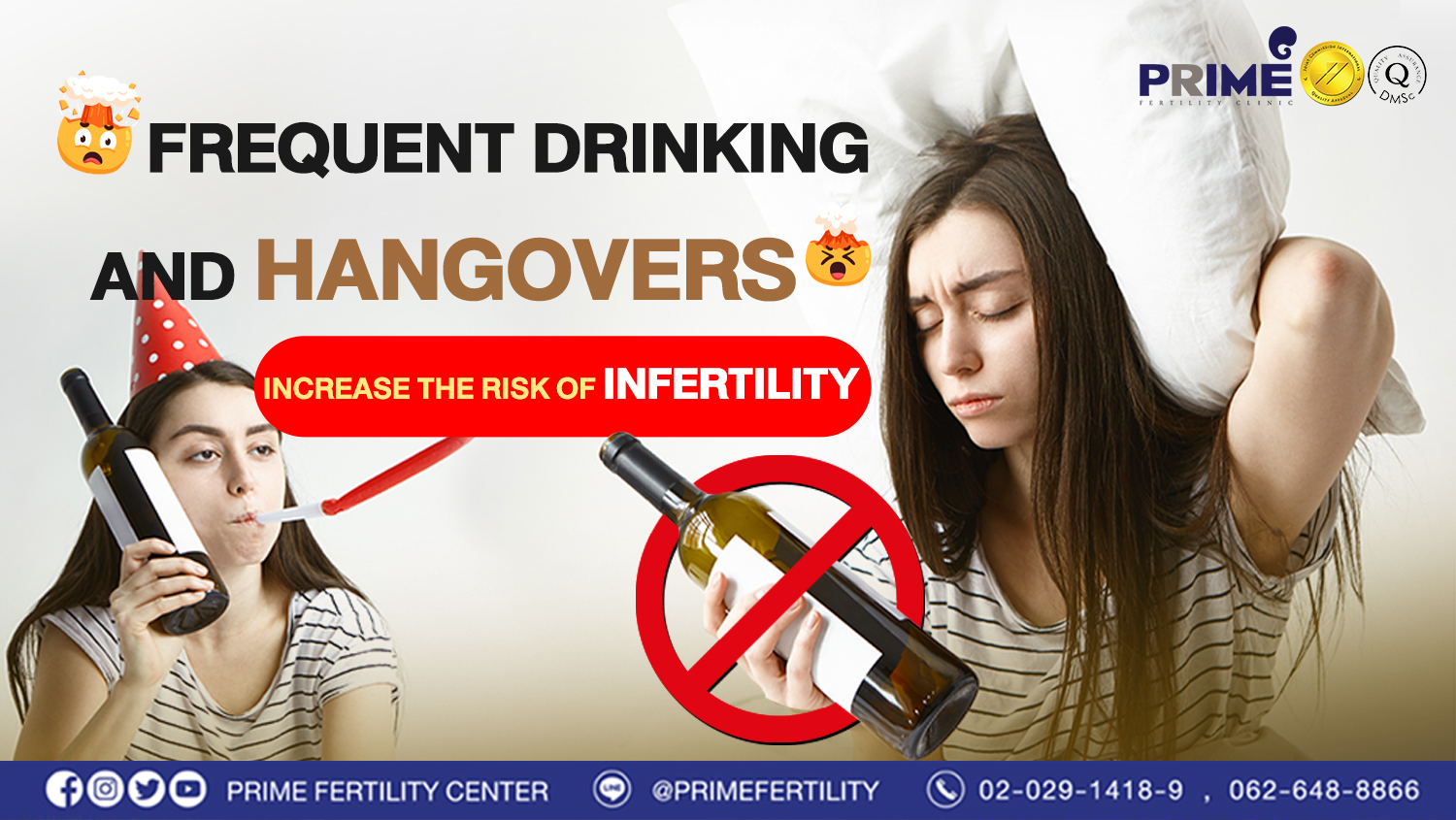Behaviors that cause degenerated eggs in women can happen naturally. It can happen when a woman is getting older, starting from the age of 29 – 30. It results in the decreased egg during the cycle and poor egg quality.

As a result, it could lead to infertility, a high chance of miscarriage, or fetal anomalies.
When a woman turns 40, her eggs begin to degenerate more. During 49-50, the ovary stops working, resulting in skin change, a high chance of obesity, high blood fat, easily irritated, mood swing all the time, osteoporosis, thin bones, etc.
Here are behaviors causing degenerated eggs:
🔹 Drinking alcoholic beverages heavily and continuously leads to the degeneration of egg cell function.
🔹 Regular smoking and toxic exposure in the workplace; Toxins released from cigarettes and smoke cause egg cell inflammation and degeneration.
🔹 Sleep deprivation, irregular sleep patterns, overwork, or a regular night out cause the hormones helping in body repair to not function properly. It usually happens to shift workers who have irregular sleep patterns.
🔹 Substance abuse such as cocaine and amphetamine can directly cause egg degeneration.
🔹 Cumulative stress in daily life can also cause degenerated eggs.
Knowing this, do not forget to change and adjust your risky behaviors.
Reference: Prime Fertility Center Co., Ltd.
If you’re interested in our ICSI program, kindly find more details as below website: https://www.primefertilitycenter.com/en/package-promotion-2/icsi-package/
—————————————————————–
ICSI (Intracytoplasmic Sperm Injection)
ICSI (Intracytoplasmic Sperm Injection) is an in vitro fertilization procedure with the laboratory technology. Both IVF and ICSI are comprising of similar procedures. But the difference is how sperm will fertilize an egg. In ICSI program, only one best sperm cell will be selected then injected directly into a fully matured egg. Patients will be prescribed some hormonal medications. Stimulating ovaries to produce several eggs. ICSI can make a pleasant fertilization rate. As well as reduces some fertilization problems or abnormalities caused from egg and sperm. For examples: multiple sperm fertilize an egg, sperm cannot penetrate the egg. The combined egg will transform to be an embryo after fertilization. Next, the embryo will be raised and will grow up among the appropriate environment inside a laboratory. Finally, the embryo will be transferred to the uterine cavity in order to implant then develop to be the fetus later on.
Couples who should receive the infertility treatment with ICSI program:
- Female’s age more than 35 years
- Stenosis for both sides of the fallopian tube
- Severe Endometriosis
- Ovarian hormone dysfunction for examples: Chronic Anovulation, PCOS (Polycystic Ovary Syndrome)
- Severe sperm abnormalities including sperm morphology, sperm count, sperm motility
- Male who is sterile or had a vasectomy but the body can still produce sperm. To extract sperm under this limitation, a surgical procedure will be performed such as PESA, TESA, TESE.
- Couples who have failed from previous IVF cycle
- Couples who prefer to screen the embryo’s genetic diseases
Frozen Embryo Transfer (FET)
Frozen Embryo Transfer (FET) is the process of embryo transplantation into the uterus after thawing frozen embryo. The patient can choose the FET date by convenient time e.g., 1-2 months after the fertilization process. The evidence supports FET in women more than 35 years of age are providing more pregnancy rates than FRESH embryo transfer.
Due to the inducing medication that the female takes to develop multiple of healthy ovum, the huge amount of hormones generated will weaken endometrium, consequently lessening the success rate of the transfer regardless of the perfect condition of embryos. Given the circumstance, the embryo transfer right away after ovum retrieval (FRESH transfer) may not be an effective protocol.
Moreover, a number of studies from various institutes found that FET offers better and higher chance of pregnancy than the FRESH transfer because endometrial tissue is in more proper state for embryos. Therefore, the doctor will consider which protocol fits best for each couple individually.




